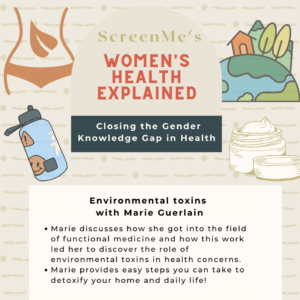Primary ovarian insufficiency (POI) happens when ovaries stop working like they should before the age of 40. This is usually when ovaries stop producing enough estrogen and stop releasing eggs. This can lead to infertility and premature menopause.
Primary ovarian insufficiency is sometimes confused with premature menopause but these two are very different and have different consequences. Women with primary ovarian insufficiency may experience irregular periods and can even get pregnant. Women with premature menopause however stop having periods and can no longer get pregnant.
Women with primary ovarian insufficiency can be treated in order to help them become pregnant, preserve their fertility and reduce risk of diseases associated with this condition such as osteoporosis and vaginal issues such as dryness and infections.
What are the symptoms of primary ovarian insufficiency?
Symptoms of primary ovarian insufficiency are like that of low oestrogen and menopause. These include:
- Irregular or skipped periods, which might be present for years or develop after a pregnancy or after stopping birth control pills
- Fertility problems
- Hot flashes
- Night sweats
- Vaginal dryness and infections
- Painful sex
- Dry eyes
- Mood swings/irritability and difficulty concentrating
- Decreased libido
How and when to check for primary ovarian insufficiency?
A comprehensive hormonal test looking at the levels of your estrogen, FSH, LH AMH (egg reserves) can help check if your ovaries are not functioning as expected and allow early diagnosis and treatment of primary ovarian insufficiency.
Learn more about how you can check your ovarian function and health from home using ScreenMe’s ovarian health test!
How can you treat primary ovarian insufficiency?
Treatment of ovarian insufficiency depends on the issue that the insufficiency is causing and needs to be tailored to the individual. The right treatment may involve:
- Estrogen therapy: Estrogen therapy can help prevent osteoporosis as well as relieve hot flashes and other symptoms of estrogen deficiency. Your provider may prescribe estrogen with the hormone progesterone, especially if you still have your uterus. Adding progesterone protects the lining of your uterus (endometrium) from precancerous changes that may be caused by taking estrogen alone.
The combination of hormones may make your period come back, but it won’t restore ovarian function. Depending on your health and preference, you might take hormone therapy until around age 50 or 51 – the average age of natural menopause.
In older women, long-term estrogen plus progestin therapy has been linked to an increased risk of heart and blood vessel (cardiovascular) disease and breast cancer. In young women with primary ovarian insufficiency, however, the benefits of hormone therapy outweigh the potential risks.
- Nutritional interventions: Nutrients are important in function and health of ovaries and eggs and also in reducing risk of and preventing disease such as osteoporosis and other symptoms associated with low estrogen. Ensuring a healthy diet for you that prevents insufficiencies of important nutrients such as vitamin D, Vitamin Bs, Iron and calcium can be of significant help.
If you are diagnosed with POI and need help book an appointment with ScreenMe’s reproductive health team for tailored support!
Fertility and primary ovarian insufficiency
Women with primary ovarian insufficiency don’t ovulate (release an egg) every month and this can make it difficult to get pregnant. However, research has shown that some women with primary ovarian insufficiency where the cause is unknown do sometimes ovulate and so can get pregnant with the right support.
Women with POI who struggle to get pregnant through intercourse can get help by using IVF and also by using donor eggs.
If you are diagnosed with POI or are struggling to conceive, then we recommend a fertility test ScreenMe’s fertility package can help you optimise your health and improve your chances of success.
Future fertility and primary ovarian insufficiency
Being diagnosed with primary ovarian insufficiency can be scary and confusing specially if you are considering having children in the future.
Egg freezing can be used to help women diagnosed with POI preserve their eggs for use in the future in order to conceive through IVF. Read more about egg freezing here.







